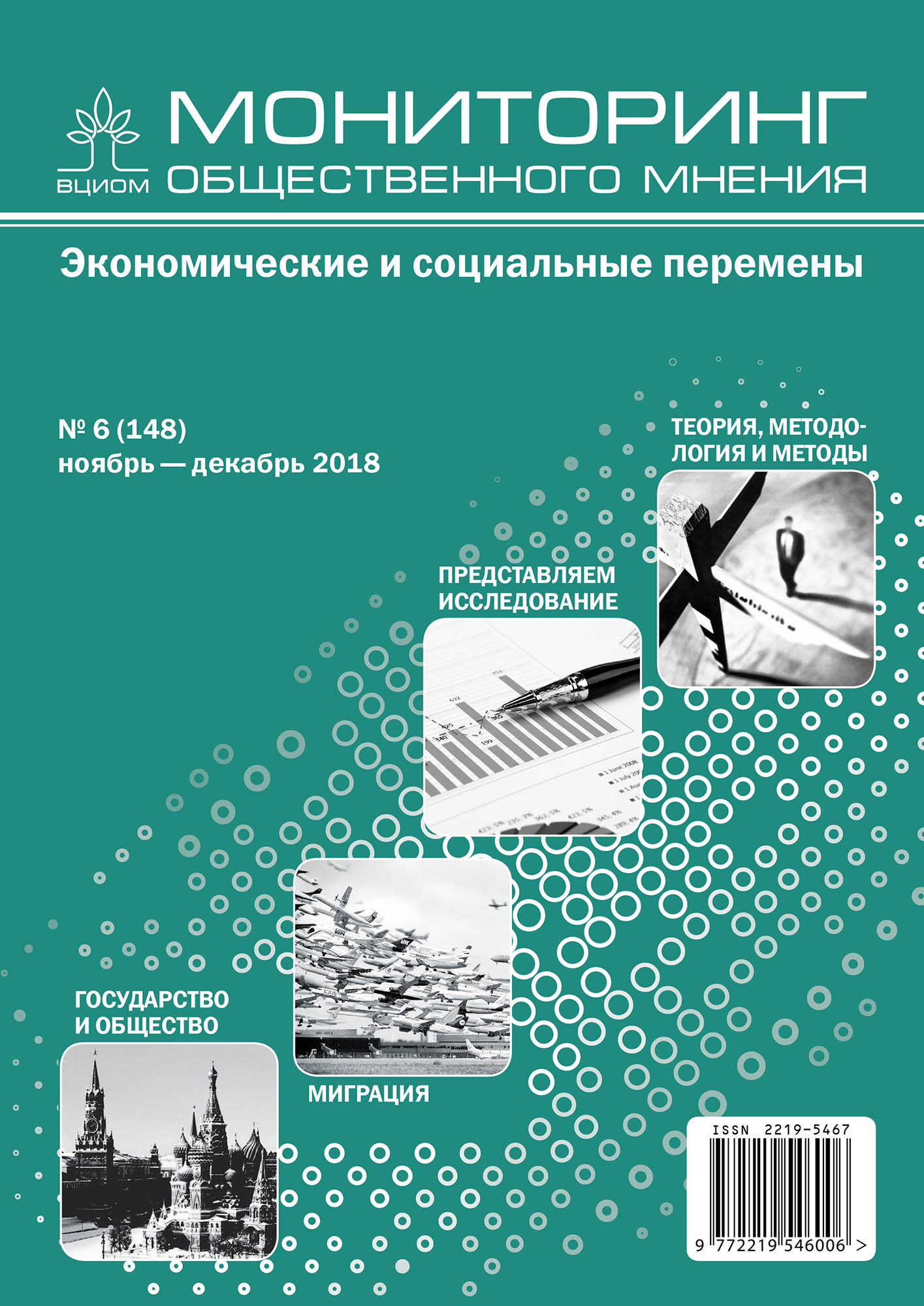Focused interview according to Robert Merton: features and criteria of quality
DOI:
https://doi.org/10.14515/monitoring.2018.6.04Keywords:
focused interview, Robert Merton, definition of situation, effectiveness criteria of the focused interviewAbstract
The method of focus groups (FG) has become widespread in social studies. FG and similar terms denote a family of techniques for collecting qualitative data through a group discussion of a predetermined topic directed by a moderator. At the same time, these techniques often focus on different matters: researchers may be interested in social representations (the vocabulary of the transcripts and its structure), both about what actually (has) happened, and about the possible (what will happen, what’s to be done, how it should be); both ready-made representations and those developed in the course of group dynamics; representations both about a concrete real situation, and about an abstract one, etc. All these features should be reflected both in the instructions how to organize the data collection and in the criteria of quality of the issue. However, as we are able to see it, most methodological writings on FG prefer to take these features descriptively, with no strict and systematic operationalization into the quality criteria of the data being collected. The only exception is the pioneering writings by Robert Merton and his colleagues about a (group) focused interview (FI).
The purpose of the article is to reconstruct the features of the FI method and the criteria for assessing the quality of its results in order to provide an opportunity for further systematic comparisons of various outwardly similar techniques and systematization of criteria for assessing the quality of their results. The article is devoted to a focused interview in the classic concept of Robert Merton. The specifics of a focused interview are analyzed in detail. We consider four key criteria for the effectiveness of a focused interview (completeness, specificity, depth, personal context), an attempt is made to group the criterion on two grounds. The first basis is the "quality of stimulus reflection", which includes such characteristics as completeness, specificity. The second basis is the "quality of the reflection of the stimulus image," which includes the following characteristics in Robert Merton's concept: depth, personal context.
In a holistic process of focused interview, it is advisable to distinguish two phases: the phase of the organization of perception of the stimulus (situation) and the phase of reporting the results of the perception of the situation.
In the phase of the organization of perception (the same) situation (the same referent), focusing (directionality) is encouraged, whereas in the phase of communicating response reactions to a single (objectively identical) stimulus, the defocusing is fundamentally encouraged for all stimuli.
The author conclude that in analyzing the data of a focused interview, three components are distinguished: an objective situation, a subjective definition of the situation, reactions to the objective situation in accordance with its subjective definition.
The author conclude that the "focused interview" method, with all visible pluses, has a number of limitations: (1) narrowness, in a focused interview, the most specific and specified stimulus is discussed, (2) the method is limited, a focused interview in the Mertonian sense is not applicable when discussion of topics that are not and cannot be the subject of a common, shared by all experience, (3) time constraints — the incentive can be forgotten, revised due to the passage of a large amount of time from the moment of its impact to the moment of its discussion.






